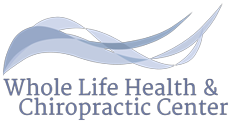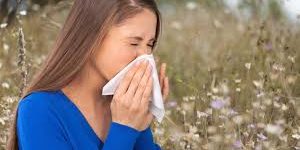Today approximately 1 in 6 Americans, or over 50 million people, suffer from a wide variety of allergies. This number continues to increase and is now the 6th leading cause of chronic illnesses. While most people associate allergies with sneezing, watery eyes, hives and itchy skin from having eaten, breathed, or touching some offending substance, allergies can be the underlying cause of many different health issues. Why are the number of people, types and symptoms of allergies increasing so steadily? Are there alternative ways to deal with allergies?
The Definition of an Allergy
In its most basic definition, an allergy is an overreaction by the immune system to a substance that would normally be considered a neutral substance to the body and not cause any reaction.
Why the Increase in Allergies?
Modern life assaults our bodies from without as well as within. We are exposed to chemicals in the air we breathe, the water we drink and food we eat.
Consider this. At the turn of the last century bread making required only whole grains, water, butter, baker’s yeast and a little sweetener to help the yeast rise. Today a modern loaf of bread may contain more than 100 different ingredients, including preservatives, coloring agents, insecticides, pesticides and fungicides, as well as chemical residues from various packaging and cleaning procedures. These can sensitize an immune system and cause us to react negatively to many other substances.
Our bodies are still biologically programmed to reside in a much simpler environment. Is it any wonder that the number of people complaining of allergic reactions has increased dramatically.
What are Other Symptoms of Allergies?
Besides the common symptoms of sneezing, watery eyes, hives and itchy skin, the next most common symptoms allergic people can experience are:
- dizziness
- queasiness
- cramps
- diarrhea
- vomiting
- a tingling sensation in their mouth
- swelling of their tongue or face
In the most extreme situations, allergies can result in anaphylaxis, a severe, potentially life-threatening allergic reaction marked by constriction of the airways, leading to difficulty breathing. In severe cases it may cause swelling of the throat that completely blocks the airway.
But allergies can also be the root cause for a wide range of ailments not usually associated with allergies. These include issues such as:
- Gastrointestinal problems like indigestion, constipation, ulcers, etc
- Headaches
- Backaches
- Arthritis
- Brain symptoms like brain fog, depression, attention-deficit disorders
- Skin problems such as boils, slow healing wounds, eczema, etc.
- Kidney and bladder infections
Traditional Methods of Dealing with Allergies
Traditional Western medicine regularly recommends taking over-the-counter antihistamines and/or decongestants to address any symptoms short term as a first resort to common allergy reactions.
The next step is trying to identify the offending allergens. (Allergens: those elements that cause a negative allergic reaction). This is typically done through skin scratch tests where small amounts of various substances are scratched into your skin with a needle to see if there is a reaction.
If a food allergy is suspected there are two approaches. One is a blood test which has mixed reviews on how reliable they are. The usual recommendation is to do an elimination diet where you cut foods out of your diet and then introduce them back one a time to try to determine what’s bothering you. That is usually a very time consuming and frustrating process that may or may not identify what’s bothering you. This elimination approach may also be used for other types of issues.
Once allergens have been identified allergy shots are typically prescribed. This involves injecting small amounts of the offending substances and work by gradually exposing your immune system to the specific substances you’re allergic to. The intent is to train your body not to react or cause symptoms. This process can require regular doctor visit over several years.
What are Alternative Allergy Treatments
Some treatments people have tried are:
- Herbal supplements that act as natural antihistamines or decongestants
- Acupuncture and/or chiropractic
- Nasal saline using a Neti pot to clear allergens from the nose
- Using a variety of essential oils
- NAET
What is NAET
NAET is a very successful and non-conventional way to address allergies. This approach was developed by Dr. Devi Namburdripad looking for a way to overcome her own serious allergic reactions to foods. Per the ncbi.nln.nih.gov*… NAET is a non-invasive, drug-free, holistic treatment, based on a combination of knowledge and techniques borrowing from Western medicine (allopathic) and traditional Oriental medicine (e.g. chiropractic, kinesiology, and acupuncture).
Dr. Ray Alexander at the Whole Life Health Center has been practicing NAET for over 25 years and has helped 1,000’s of patients find relief from their allergy symptoms.
Call our office if you are suffering from allergies. Dr. Alexander offers a FREE phone consultation or to schedule a full evaluation.
Testimonials
Here are some of their testimonials on the effectiveness of NAET:
“As a child I was always sick…As a young adult I continued to have many of the same problems. Twelve years ago, I was diagnosed with Chronic Fatigue Syndrome. I have had sinus surgery twice. A year ago I was sick all the time.. My daughter-in-law heard about NAET treaments and sent me the information that she located on the internet. I started to see Dr. Alexander soon afatern. That was a year ago. I cannot believe how much better I feel”. Marilyn J. – Lawrenceville, Ga
Two ears ago I could eat almost nothing without my skin turnng bright red. I itched all over. I dreaded eating. After being treated for my food allergies with NAET, I can eat anything I want. I am so grateful! I have energy to do thing I enjoy, such as walking, stretching. I even have enough energy to ice skate, which I began seven months ago. People I know have noticed my increased energy. It was a long haul, but Imade it! Thank you so much, Dr. Alexander and office staff. Stephen McM – Lilburn, Ga.
“I started NAET about 6 months ago. The difference in how I feel is amazing. After being diagnosed with chronic fatigue, fibyromyalgia, interstitial cystitis, irritable bowel, extensive food and environmental allergies, etc. and going from doctor to doctor I finally turned it over to Dr. Alexander. This was the best decision that I have made towards recovery in life.” Joan M. – Lawrenceville, Ga.
- ncbi.nlm.nih.gov. The National Center for BiotechnologyInformation (NCBI) is part of the United States National Library of Medicine (NLM), a branch of the National Institutes of Health (NIH). It is approved and funded by the government of the United States








